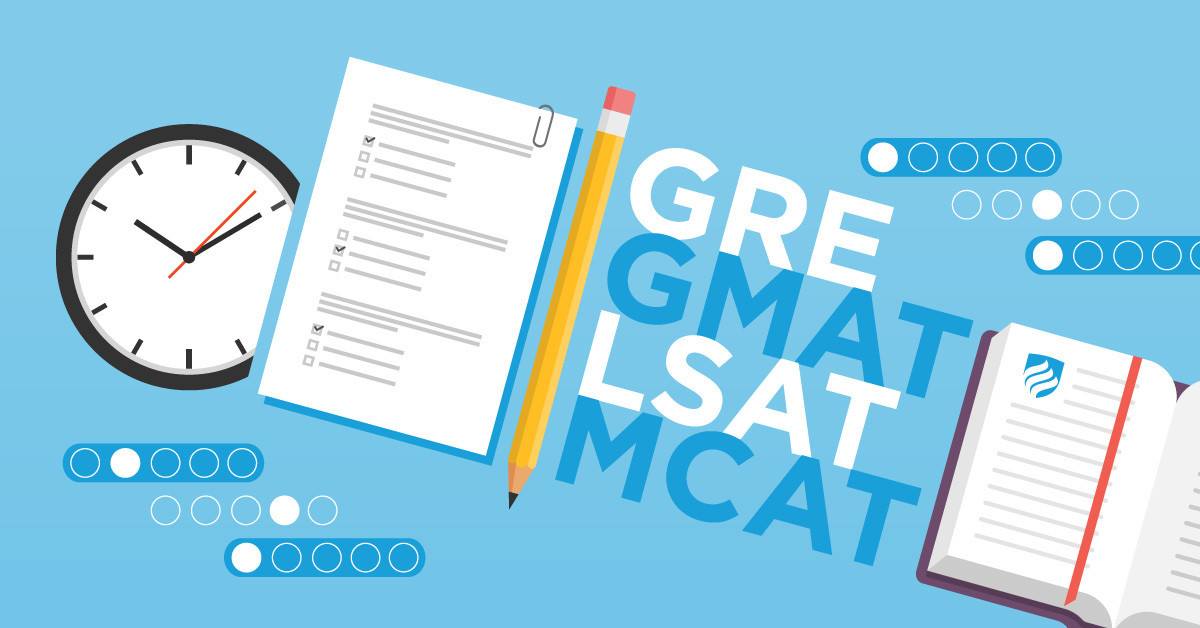In the realm of education, standardized tests play a crucial role in evaluating students’ knowledge, skills, and aptitude. The GRE, GSAT, and ACT are three prominent standardized tests, each designed to cater to specific academic needs. These tests not only serve as gateways to higher education but also offer a range of benefits that can shape students’ academic and professional journeys. Let’s explore the unique features and advantages of each of these tests.

The GRE (Graduate Record Examination)
The GRE is a significant milestone for students aiming to pursue graduate studies. Comprising sections on Verbal Reasoning, Quantitative Reasoning, and Analytical Writing, the GRE assesses a diverse range of skills that are essential for advanced academic pursuits. Here’s how the GRE benefits students:

- Admission to Graduate Programs: A strong GRE score is often a prerequisite for admission to graduate programs, showcasing a candidate’s readiness for higher-level academic challenges.
- Flexibility Across Disciplines: The GRE’s adaptability makes it applicable to a variety of fields, from humanities to science. This universality ensures that students from diverse backgrounds can demonstrate their abilities.
- Holistic Skill Assessment: The GRE’s multifaceted structure evaluates not only quantitative and verbal skills but also critical thinking and analytical writing abilities. This comprehensive assessment prepares students for the rigorous demands of graduate-level coursework.
The GSAT (Graduate School Admission Test)
Specifically tailored for students in the Caribbean region, the GSAT serves as an avenue for accessing graduate education. This unique test offers several benefits to its takers:

- Local Relevance: The GSAT is designed to align with the educational needs and standards of the Caribbean region, ensuring that students are well-prepared for advanced studies at local institutions.
- Regional Opportunities: By excelling in the GSAT, students can access a wide array of graduate programs in the Caribbean, forging connections and networks that cater to their academic and professional aspirations.
- Personal Growth and Challenge: The GSAT’s comprehensive assessment encourages students to broaden their knowledge and enhance their intellectual abilities, fostering personal growth and development.
The ACT (American College Testing)
For high school students aspiring to enter colleges and universities in the United States, the ACT offers a pathway to showcase their readiness for higher education. The ACT’s unique attributes provide students with several advantages:

- Holistic Academic Evaluation: Like the SAT, the ACT assesses English, Math, Reading, and Science. However, the ACT includes an optional Writing section, enabling students to display their writing skills to admissions committees.
- Subject-Specific Proficiency: The ACT’s emphasis on subject knowledge allows students to demonstrate their expertise in key academic areas, aligning their strengths with specific college majors and programs.
- Test-Taking Strategy: As the ACT rewards students for accurate answers without a penalty for wrong ones, test-takers can employ strategic approaches, increasing their chances of scoring well.
Universities that Accept GRE Scores:

- Harvard University – A prestigious Ivy League institution that considers GRE scores for various graduate programs.
- Stanford University – A leading research university that accepts GRE scores for a range of graduate programs.
- Massachusetts Institute of Technology (MIT) – Renowned for its science, engineering, and technology programs, MIT considers GRE scores for admissions.
- University of California, Berkeley – A top public research university that accepts GRE scores for many of its graduate programs.
- Columbia University – An Ivy League university that looks at GRE scores for admissions to its various graduate schools.
Universities that Accept GSAT Scores:
- University of the West Indies – A prominent Caribbean institution that uses GSAT scores for admission to various graduate programs.
- University of Technology, Jamaica – This university in Jamaica considers GSAT scores for admissions to certain graduate courses.
- University of Guyana – A well-regarded university in Guyana that uses GSAT scores for its graduate admissions process.
Universities that Accept ACT Scores:
- Harvard University – Harvard College, the undergraduate division of Harvard University, accepts ACT scores as part of the application process.
- Yale University – Another Ivy League institution, Yale University, accepts ACT scores from applicants.
- Stanford University – Stanford University accepts ACT scores for undergraduate admissions, along with SAT scores.
- University of Michigan – A prominent public research university that considers ACT scores for admissions.
- University of California, Los Angeles (UCLA) – UCLA, a prestigious public research university, accepts ACT scores for undergraduate admissions.
Frequently asked questions (FAQs) related to GRE, GSAT, and ACT tests:
- Are these standardized tests mandatory for all universities and programs mentioned? No, the requirement for these tests varies by university and program. While some universities have standardized test score requirements, others offer test-optional policies. It’s essential to check the admission requirements of the specific institutions you’re interested in.
- Can I take multiple standardized tests to improve my chances of admission? Yes, you can take multiple tests if the institutions accept them. However, it’s important to focus on the test that aligns best with your strengths and the requirements of your desired programs. Quality scores are more crucial than quantity.
- Do universities consider other factors aside from test scores during the admissions process? Absolutely. While test scores play a significant role, universities also assess other aspects of your application, such as academic transcripts, letters of recommendation, personal statements, extracurricular activities, and relevant experience.
- What if my preferred university doesn’t accept the test I’ve taken? If your preferred university doesn’t accept the test you’ve taken, you might need to explore other universities that align with your test scores. Some universities have flexible admissions policies that consider a range of test scores or offer alternative pathways for entry.
- How can I prepare effectively for these standardized tests? Effective preparation involves a combination of studying the test content, taking practice exams, understanding the test format, and employing time-management strategies. Many test preparation resources are available, including official study materials provided by test administrators and external prep courses.
- Can international students take these tests, and are there any specific requirements for them? Yes, international students can take these tests. However, there might be additional requirements, such as English language proficiency tests (like TOEFL or IELTS) for non-native English speakers. Be sure to review the admission criteria for international applicants on the universities’ official websites.
- Can I retake these tests if I’m not satisfied with my scores? Yes, you can often retake these tests to improve your scores. Some tests have limitations on how frequently you can retake them, so be sure to check the test policies. Keep in mind that some universities consider your best scores, while others might consider all your attempts.
